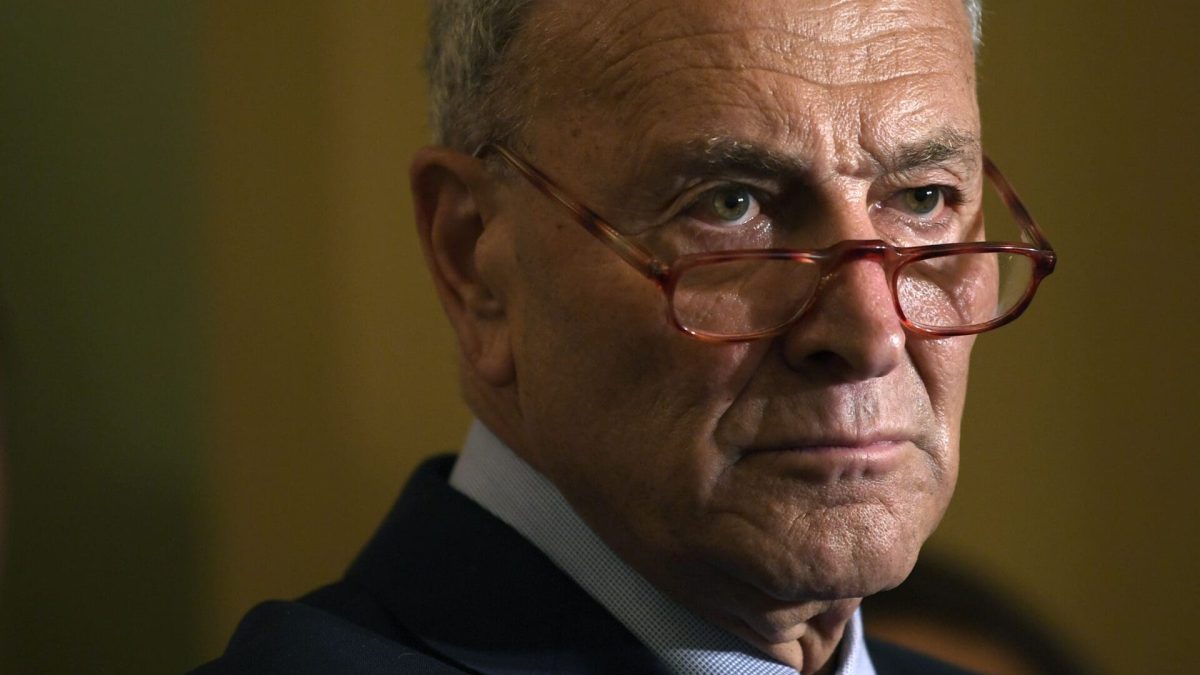During his first term, President Donald Trump appointed 234 federal judges to the bench, including three U.S. Supreme Court justices, 54 judges to U.S. courts of appeals and 174 judges to U.S. district courts throughout the country. In essence, he reformed the makeup of the federal judiciary in four years.
With Trump’s recent election and Democrats fearing more of the same, U.S. Senate Majority Leader Chuck Schumer, D-NY, is making no attempt to hide his effort to rush as many new judges nominated by President Joe Biden through the confirmation process before Trump takes back the reins.
President Biden has already tried to turn many courts toward a more liberal mindset, having appointed 218 federal judges during his term. But that’s not good enough for Schumer, who is actively shaking hands and making deals to confirm more Biden judges over the next several weeks.
In late November, Schumer promised Democrats would, “keep prioritizing judicial and administrative confirmations this week, this month, and for the rest of this year.”
As of the end of November, 15 of Biden’s judicial nominees were pending and 45 vacancies remained.
Republicans in the Senate have used a number of procedural tactics to slow down the confirmation process. However, on November 20, Schumer announced a late-night deal with Republicans that would speed up the process for voting on some remaining judicial nominees, at the same time agreeing not to hold votes on others.
The deal means Schumer plans to seek votes on nine Biden district court nominees this week as Congress returns from its Thanksgiving recess. According to numerous media reports, Republican Senators agreed not to impose delays on those nine nominees, and on December 3, two district judge nominees were confirmed.
In addition to those nine, five other district court nominees have already been reported out of the Senate Judiciary Committee. If Schumer manages to push through the 16 judges many political observers expect him to, Biden will have appointed 236 federal judges to lifetime posts, surpassing Trump’s number by two.
Part of the deal, however, was that Schumer agreed not to hold confirmation votes for two nominees to federal appeals courts. Two other appeals court nominees face such an uphill battle that a vote also won’t be held for them. That will leave President-elect Trump with the opportunity to fill those four critical judicial seats, raising the total to 58 appeals court judges appointed by him with four more years left to fill other seats.
Of course, the confirmation or rejection of these judges is important to all gun owners since judges nominated by Republicans tend to read the Constitution more literally than those appointed by Democrats. Republican-appointed federal judges have also better followed the standards set for determining Second Amendment cases in the 2022 ruling in New York State Rifle & Pistol Association v. Bruen.
For his part, President Trump has urged Senate Republicans to block the nominees if possible, saying that Senators should “show up and hold the line.”
“The Democrats are trying to stack the Courts with Radical Left Judges on their way out the door,” Trump posted on Truth Social. “Republican Senators need to Show Up and Hold the Line—No more Judges confirmed before Inauguration Day!”
As most readers likely know, outgoing presidents have long attempted to have judicial nominees approved before they leave office. Depending on the makeup of the U.S. Senate at the time, those efforts can be successful or fruitless.
During the lame-duck session at the end of President Trump’s first term, after his loss to President Biden, the Republican-led Senate confirmed 18 of the president’s judicial nominees. With Republicans recapturing the Senate majority in last month’s election, it’s likely President Trump won’t have much trouble getting judicial nominees approved when the new Congressional session begins on January 3.
Read the full article here


